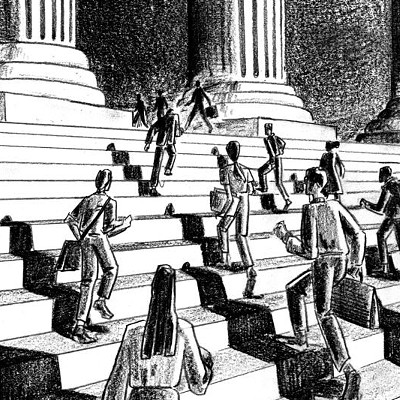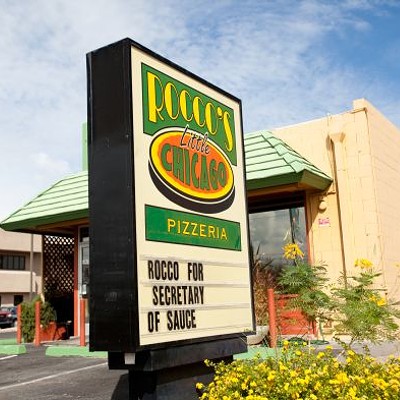It's unfortunate that hundreds of Tucsonans lost their jobs when First Magnus was hit by the inevitable evaporation of easy credit, and seeing people lose their homes is never a pretty sight, but from what I can glean from articles in The Economist, savvy investors have been questioning the changes in financial markets for years.
Behind the economic peril impacting cities from Tucson to Tokyo are what the magazine calls "newly devised structures of finance." These structures include "the securitisation of just about every form of debt into a tradable asset." In other words, people (and institutions) are making money from selling other people's debts.
Let's take the Montes family as an example (only because they were featured in a recent Wall Street Journal article). They bought a house in Southern California for close to $600,000. With two jobs, they earned just less than $90,000 last year.
They had only enough money for a small down payment when they purchased the home and agreed to a mortgage that would increase after a couple of years. The Montes were counting on their ability to refinance in order to keep their housing loans manageable.
The problem: There is no money available for refinancing, and, possibly worse, their home is now worth less than what they paid for it. Like so many other overextended families, the Montes "in effect bet that the boom in housing prices would continue," according to the WSJ. They were also betting someone would buy their refinanced debt.
I don't know about you, but when a debt becomes an asset, and when debt is sold and traded, I worry. I also worry when I see a definition of liquidity (one of those economic terms conjured up by the Dark Side) as "changes in price that can be absorbed by the market in a particular security," and the "security" is a bundle of mortgage debt.
So here's my question: How can debt ever be secure, especially if the debt is secured by homes that were priced way above their value in the first place?
This brings us to my most suspicious, conspiracy-believing friend who is certain this entire bubble was intentionally created to make a cabal of lenders even wealthier.
Frankly, I don't see it, but I could be missing something here. I could, admittedly, be missing a lot, since even basic physics led to some "A-ha!" moments in college, but economics eluded me. The subject matter always appeared contrived, false and essentially contrary to my observations of social relations. It seemed as if economists overlaid the human experience with a set of bogus, protean "rules" governed by an artificial language in the service of some mercurial thing known as "the market."
What is clear is things have gotten so bad that central banks are intervening to shore up a system that probably ought to be left to collapse from its own excesses. That's admittedly harsh, but Western civilization, starting with Adam Smith's terribly misguided notions about economics, has managed to create a global web based on ever-more accumulation and ever-more creation of "wealth" rather than one responsive to genuine human needs.
Karl Marx was wrong about almost everything. What he wasn't wrong about was the eventual collapse of capitalism. Though it's unlikely we are witnessing the beginning of the end of a "free" market system, how the next scene will play out is anybody's guess. Meanwhile, economic and financial analysts will continue to make their voodoo predictions.
People like the Montes family, who believed so fiercely in the American dream that they were willing to ignore the possibilities of lost jobs, illness or the fabrications of their mortgage broker, are among the naïve and willing victims of an unsustainable housing bubble that has finally burst.
And communities like Tucson, so adept at riding the waves of speculation, may learn from this debacle that slow and sustainable beats the quick buck every time.






